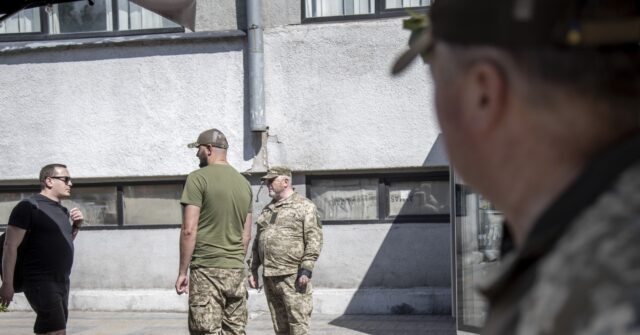As the war with Russia persists, Ukraine faces a critical manpower shortage, prompting desperate measures from military recruiters. Reports indicate a troubling trend in which recruiters are resorting to increasingly coercive, deceitful, and at times violent tactics to conscript men into the armed forces. Recent coverage by the Times of London reveals that the Ukrainian military seeks to mobilize an additional 200,000 men to maintain and potentially escalate efforts in the ongoing conflict. These extreme measures are reflective of a nation struggling to meet its military needs amidst a war that has already taken a significant toll on its population.
An anonymous conscription officer from Odesa disclosed that some recruiters have abandoned legal approaches in favor of unlawful strategies. These tactics include physically seizing men from the streets, regardless of their exemption status, raising serious ethical concerns about the state’s approach to recruitment. The officer stated that the pressure from higher authorities to achieve recruitment goals results in misconduct, severely damaging the integrity of the recruitment system. Such practices indicate a deterioration of trust and respect for both the military and government institutions, as conscription efforts increasingly reflect desperation rather than voluntary service.
Compounding the already dire situation are reports of chaotic scenes at recruitment offices. In one notable incident, conscription officers clashed with ambulance personnel when a medic was detained while attempting to update his exemption paperwork. Another case involved an individual with a chronic kidney ailment who was misled by police into reporting to the conscription office, only to go missing thereafter and later be found in a military training camp. The frequency of such incidents has prompted locally formed networks, including a Telegram group with thousands of members, aimed at sharing information about the movements of recruitment squads. These developments underscore the desperation of the military to fill ranks as the war drags on.
Despite the aggressive drive to recruit more soldiers, the Odesa conscription officer stated that progress has been dismal, noting that only a fraction of the desired recruits are being mobilized. This failure is attributed to various factors, including corruption within the military recruitment system, significant public disillusionment with the war, and overarching issues of mismanagement. The moral and structural failings within the recruitment process have converged to hinder Ukraine’s ability to gather forces needed for the fight against Russia, raising concerns about the military’s long-term sustainability.
Corruption remains a significant barrier to achieving recruitment goals, particularly in Odesa, which has a legacy of affluence and corrupt practices. Reports have emerged of local elites paying off officials to secure exemptions for their family members, reflecting a larger trend where wealth can influence military service obligations. Despite President Zelensky’s promises to tackle corruption, recent revelations indicate that the problem persists, with reports of officials still receiving bribes to forge exemption documents for those wishing to avoid conscription. This ongoing challenge not only undermines the military hierarchy but also engenders widespread mistrust within society.
Additionally, issues with the health of potential recruits add another layer of complexity to Ukraine’s recruiting struggles. The conscription officer pointed out that a notable percentage of those who do attempt to enlist are often found to have disqualifying medical conditions, such as hepatitis or tuberculosis, which further limits the pool of eligible candidates. In light of these challenges, the officer suggested a potential reach for greater NATO oversight in Ukraine’s conscription policies and called for increased wages for soldiers to incentivize enlistment. Unless significant changes are made to counteract these persistent issues, the officer warned of a prolonged stalemate where recruitment targets remain unmet, aggravating an already fraught situation in the ongoing conflict with Russia.

